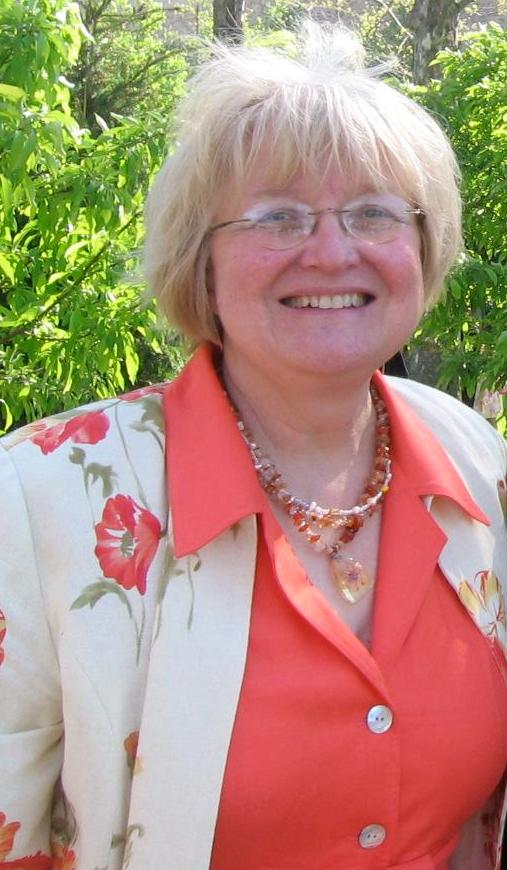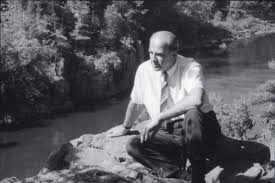His genuine concern and love for the environment always comes to mind in April as we as a country honor his memory with celebrations of Earth Day. It is sometimes hard to fathom the idea that 20 million people participated in that first Earth Day in 1970 -- all organized and coordinated without the luxury of today's social media.
For a look back and remembrance of this wonderful man who said, "The ultimate test of a man's conscience may be his willingness to sacrifice today for future generations whose words of thanks will not be heard," we re-connected with Bill Christofferson, author/biographer of The Man From Clear Lake: Earth Day Founder Senator Gaylord Nelson. The Wilderness Society described the book as: "A fun book to read-filled with fascinating stories of politics in the twentieth century. We yearn for more political leaders like Gaylord who always voted his conscience and led with integrity and humor."
We thank Bill for his work with Senator Nelson and his help with our April Progressive Profile.
Q. What would the Senator say about how we've lost focus on the environment? What sparked an interest in the environment for him back in the 1970s that led him to promote an Earth Day that would still be relevant today?
I'm always reluctant to put words into Gaylord Nelson's mouth, but I think he would say we've become complacent about the environment. As many or more people than ever before consider themselves environmentalists, the polls tell us, but there's not a sense of urgency about environmental issues. It may be that the environmental movement is a victim of its own successes, in that people think we've solved most of the big problems.
What motivated him to launch Earth Day was his desire to make environmental issues a part of the national political agenda, and he certainly accomplished that. Earth Day was a means to an end for him, and it was a stroke of genius in that it tapped broad grassroots concerns and activism that was bubbling up around the country but had not been focused or organized prior to Earth Day. He mobilized millions of people, and the politicians responded.
Q. Do you remember if he foresaw what is happening today? What did he think would be the key environmental issues that "the next generation" would face?
He thought that sustainability would be the biggest issue of the day -- how we can manage our natural resources in such a way that they can support future generations. There are finite amounts of resources on the planet, and there are now 7 billion people sharing them. As the world population continues to grow, so will competition for resources. Gaylord would talk about what it meant that the US population would double -- twice as many cars, schools, highways, airports, houses, hospitals, and on and on. That is simply not sustainable unless we change the way we live and manage our resources.
"We are all pursuing a self-destructive course of fueling our economies by drawing down our natural capital -- by degrading and depleting our resource base -- and counting it on the income side of the ledger," Nelson said in 2000. "This, obviously, is not a sustainable situation over the long term."
The term "sustainability" that Nelson used isn't in common usage, but it is unbridled population growth that is at the root of many of the environmental problems and policies now being debated. Do twice as many people require twice as much oil, twice as many autos, twice as many parking lots, for example, or is there another way? He would say there must be another way if we are going to survive with any real quality of life.
Q. Is there anything you remember that he said or did that could be directly applied to the fracking we are doing today and the cost it has to the environment? Did he have a vision for a "green economy?"He used to say we need to remember: "The economy is wholly-owned subsidiary of the environment, not the other way around. The real wealth of a nation is its air, water, soil, forests, rivers, lakes, oceans, scenic beauty, wildlife habitats, and biodiversity. Take this resource away, and all that's left is a wasteland." That certainly could apply to fracking, or, for that matter, to the iron ore mine being proposed in northern Wisconsin.
Q. Can you describe in your own words why environmental issues were so important to him? Did he struggle convincing his contemporaries that environmental issues were important?
He said he became an environmentalist by osmosis, growing up in Clear Lake, a village of 700 in northwestern Wisconsin, where he spent much of his time in the outdoors, learning about nature. It was always an integral part of his being, what made him tick.
When he joined the US Senate in 1963, you could count the Senators who considered themselves conservationists on one hand. By the time Earth Day rolled around in 1970, they all wanted to be thought of as environmentalists. Congress didn't meet on the first Earth Day because so many members were invited to speak at events back home. Many of them had to come to Nelson's office for help with material, because they had never given an environmental speech. But they became converts when they saw the millions of people mobilized by Earth Day, and in the next 10 years, the Environmental Decade, 28 major pieces of environmental legislation passed and became law.
Q. Who today (more than one person or an organization) represents the best of Senator Nelson's environmental vision?
(Note: You can view every article as one long page if you sign up as an Advocate Member, or higher).






